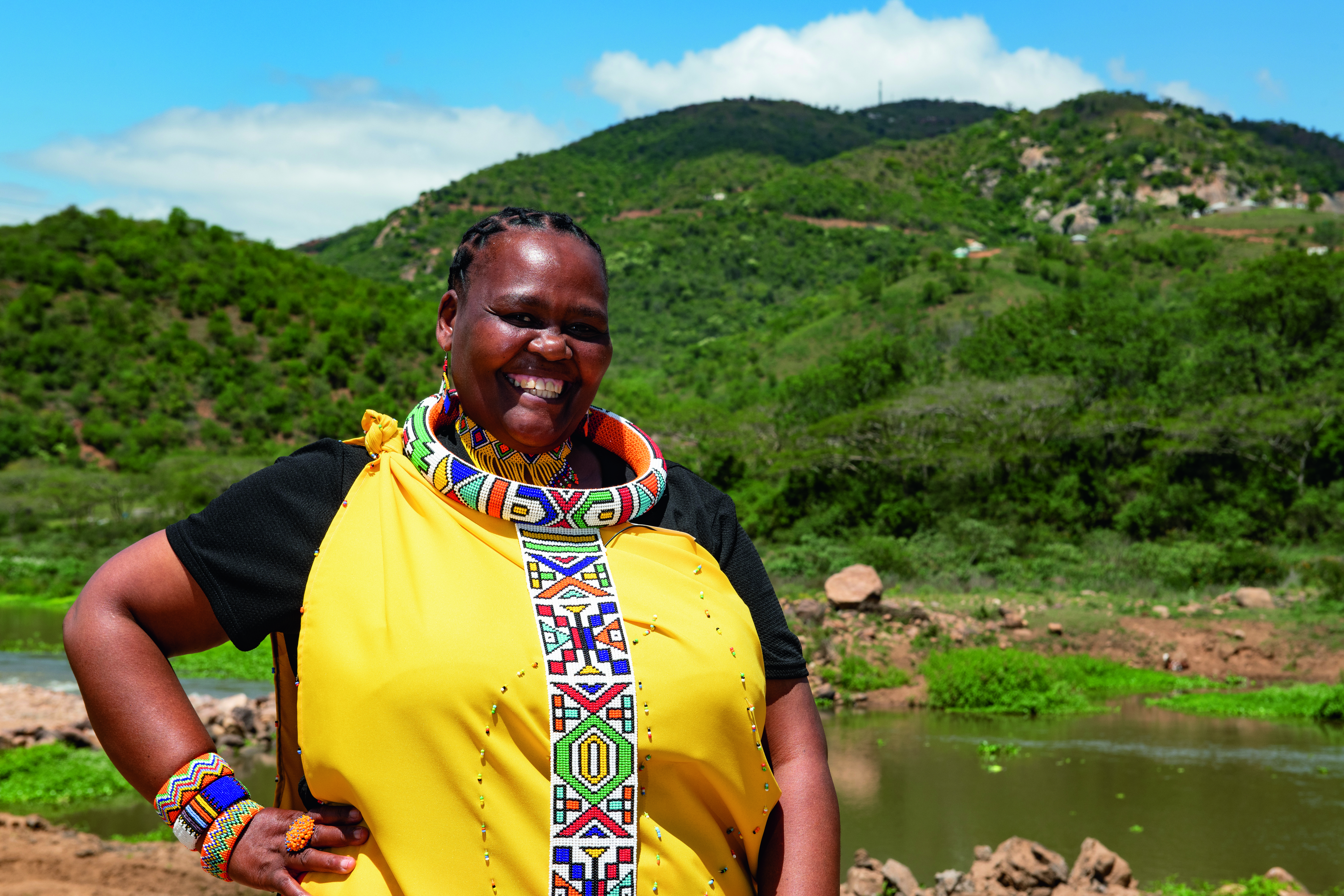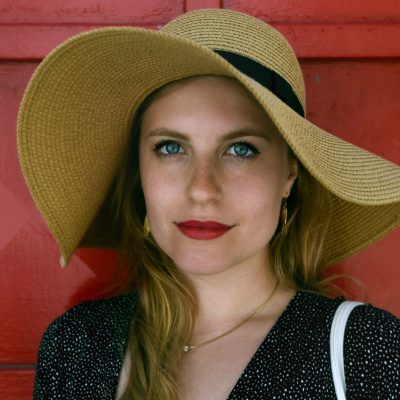
Being able to experience authentic Zulu village culture is a once-in-a-lifetime experience
“We’re receiving blessings from the ancestors right now,” Thoko Jili whispers to me as we walk barefoot into the sacred shembe circle. It’s little more than a large ring of rocks in an open glade — one of countless such temples found in villages throughout the Zulu heartland, KwaZulu-Natal. But between the golden morning light and the music of songbirds in a gnarled acacia tree, the space feels mystical, hallowed. Dressed in her Zulu finery, Thoko looks like a priestess. The bright colours of her sashes and beaded hoop-necklace pop against the rolling green hills and the rustic buildings around us. She is, in fact, a guide. “This is a tour I’m very proud to offer. I’m excited to share my culture, my roots,” she tells me as we walk through Maphephetheni. The village tumbles down the picturesque slopes of a river valley in clusters of circular rondavel huts and rustic corrals of cows and goats. The skyline hints at undulating peaks stretching for miles. “Welcome to the Valley of a Thousand Hills,” she announces grandly.
We amble down to the river’s edge where Thoko demonstrates the herculean strength of local women by filling a large bucket and parading around with it balanced on her head, without spilling a drop. “Rivers are central to Zulu life. This is where marriage proposals would traditionally happen. The men can’t propose when elders are around, so this is where they’d approach a girl to talk, while she’s washing clothes or fetching water,” she tells me. “But it’s an expensive business, marriage. A man must pay a lobola (dowry) of 11 cows to the bride’s family.”
My introduction to Zulu traditions continues in the home of a spiritual healer. “To be a sangoma is a very deep calling; they have a gift, to tell your fortune or cure you if you’re ill. If you believe in traditional medicine, it’ll work for you,” Thoko explains as we settle on reed mats and watch the healer mix potions. There’s an audible hissing from one of his buckets, and then suddenly a flash of green light and a bang that makes us both jump. It’s a sign of the man’s successful communion with the spirit world. “This room is not for cowards,” Thoko says, translating for the sangoma. “When you come for a consultation, he asks that you bring a candle; when he lights it, he can see your problem clearly.”
Back in the village, it’s time for a traditional lunch. A local family is expecting us. We duck under the low lintel into their cosy, thatched rondavel and serve ourselves plates of ujeque steamed bread, boiled sweet potatoes known as phatata, and stewed chicken. To finish, we sip homebrewed umqombothi beer from a clay calabash. It’s delicious — creamy and earthy flavour. But the biggest treat comes in the form of the local choir who come into the hut to sing for us. I’m entranced by the clicks of the Zulu language and the raw emotion of the performance. “They sing from the soul,” Thoko comments wistfully, drying her eyes.
Drums are produced and the singers execute the astonishing high kicks of a traditional Zulu dance. The performance has drawn a gaggle of local women, many carrying babies in colourful slings, and we all cheer and whistle. It’s a dramatic finale to an eye-opening morning. I’m deeply moved that this tiny, rural village pulled out all the stops for a visit like mine, and I tell Thoko so as we say our goodbyes. “There are no people so warm in the world as the Zulu people,” Thoko gushes proudly.

